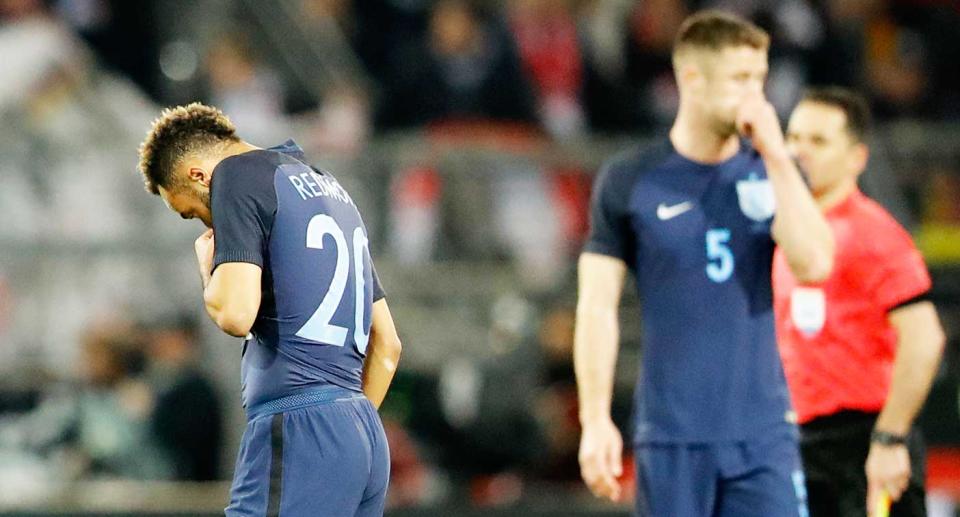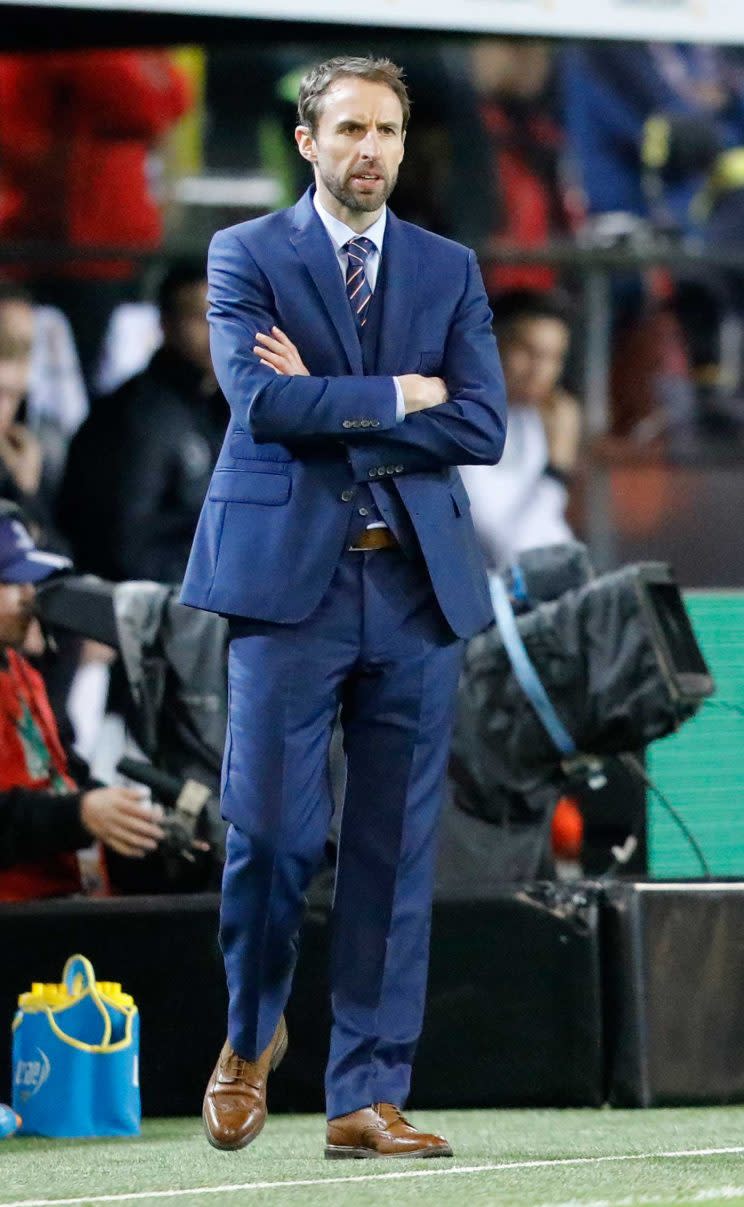The English national team is having an identity crisis

It was a long time coming and should probably have come sooner.
It’s been seven World Cups since England reached even the semifinals. It’s been six Euros since England was among the final four. The Three Lions haven’t won a knockout stage game at a major tournament in more than a decade. But England has only just realized that it isn’t very good anymore.
[ Follow FC Yahoo on social media: Twitter | Facebook | Tumblr ]
That wasn’t necessarily borne out in England’s narrow 1-0 friendly loss in Germany on Wednesday. Because the English edged the first half against the reigning world champions and had the better of the chances until Lukas Podolski’s world-class rocket in the 69th minute in his final national team game decided it. And because friendlies are friendlies.
But that doesn’t change the slow downward spiral England has been in since the late ’90s.
In a series of press conferences in the past week, newish manager Gareth Southgate – appointed full-time after an interim spell, following the two-game reign of Sam Allardyce, which came on the back of Roy Hodgson’s utterly pedestrian four-year run – verbalized some of these truths. He pointed out things the rest of the soccer world has known for a while, but that were rather stunning in their candor to his countrymen.
The English have long reasoned that because they had one of the strongest – or at least most competitive – leagues in the world, this must mean that their national game is in good shape as well, never mind that the elite talent in the Premier League is almost all foreign. Fans like to sing “football is coming home” at national team games and still consider it a birthright of sorts to be good at soccer, since the sport was modernized and codified in England and exported from there.
But Southgate finally poked through that illusion. “We are ranked 14th n the world at the moment,” he said. “We can’t keep turning around and saying. ‘If only we had done a little bit better in this one game.’ We have to look at the bigger picture and bigger trend of performances and I am not sure we have always looked at ourselves in the mirror as closely as that. But that’s what we have to do as a football nation.”
“I guess what I want to do,” Southgate added, “is have this discussion around where we want to go and the realities of where we are. I always say being an island saved us in 1945. I’m not so sure it’s helped us ever since.”
“Look at Spain,” Southgate continued. “We’re an island, we’ve got to get off the island and learn from them. We need to look in the mirror and change the way we do things tactically, physical preparation, our style of play and mentality. I want new ideas and new ways of thinking. We’ve had success in every other sport in our country. We’re probably the missing piece.”

What Southgate is getting at is that English soccer has been hopelessly insular, in spite of the vast foreign playing and managerial talent and knowledge that has flooded into the Premier League. Somehow, this trove of knowledge has always remained isolated from the national team program, with the Football Association either opting for journeyman domestic managers or foreigners with no interest in upsetting the status quo.
“I think we’ve got to broaden the horizons,” Southgate said. “It’s understandable, the lads see one league, they see Sky Sports News … they think we’re the center of the earth and we’re not. That’s what hit me [at the 2014 World Cup]. … I sat in Brazil and I’m not seeing us. It was quite a stark reality of where we are.”
So Southgate went to another country and realized nobody cares about his country, let alone fears it. And he learned that other countries hardly dread playing his, knowing that if the English are famous for anything in international soccer, it’s for choking. This was shocking to him, which says a good deal about bubble the FA – where Southgate has worked since 2013, first as the under-21 manager – has inflated around itself.
He noted that none of his players play abroad. And that, consequently, they aren’t exposed to the challenges the sport’s globalism makes almost every other player deal with, ultimately helping them on the international stage. Indeed, in the last year, the only England player to have been called up who is active abroad is goalkeeper Joe Hart, who made a loan move to Torino over the summer because Pep Guardiola had no use for him at Manchester City.
All of these realizations have begun a conversation in England – or, at least, Southgate hopes they will. The English have finally realized that in a global, modern game, their national team has been left behind, stuck in time and prone to self-reverential thinking. They’re setting out on a long journey – if Southgate is allowed to proceed – but at the end of it, they might find both themselves and a path back to competitiveness.
Leander Schaerlaeckens is a soccer columnist for Yahoo Sports. Follow him on Twitter @LeanderAlphabet.



